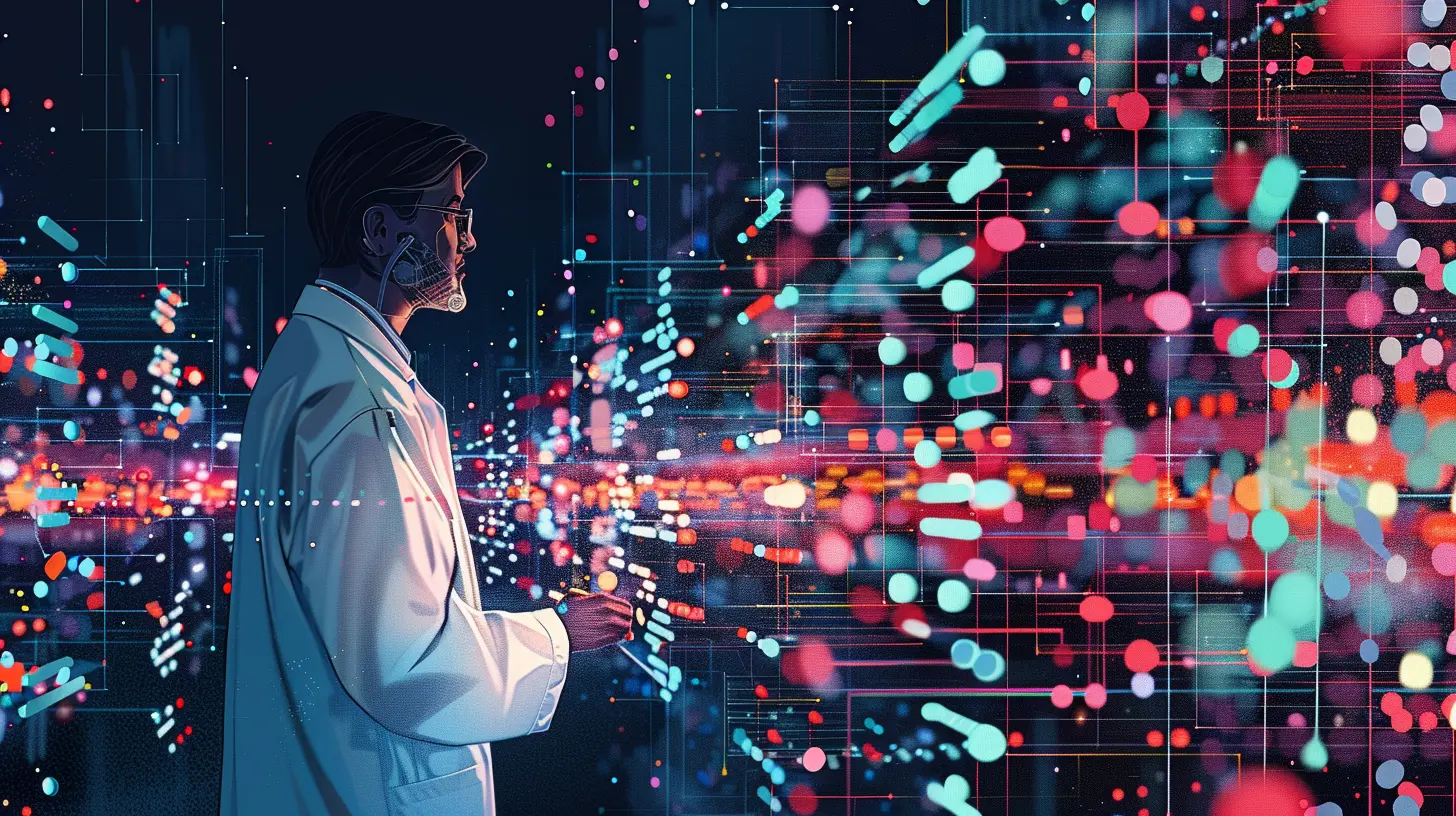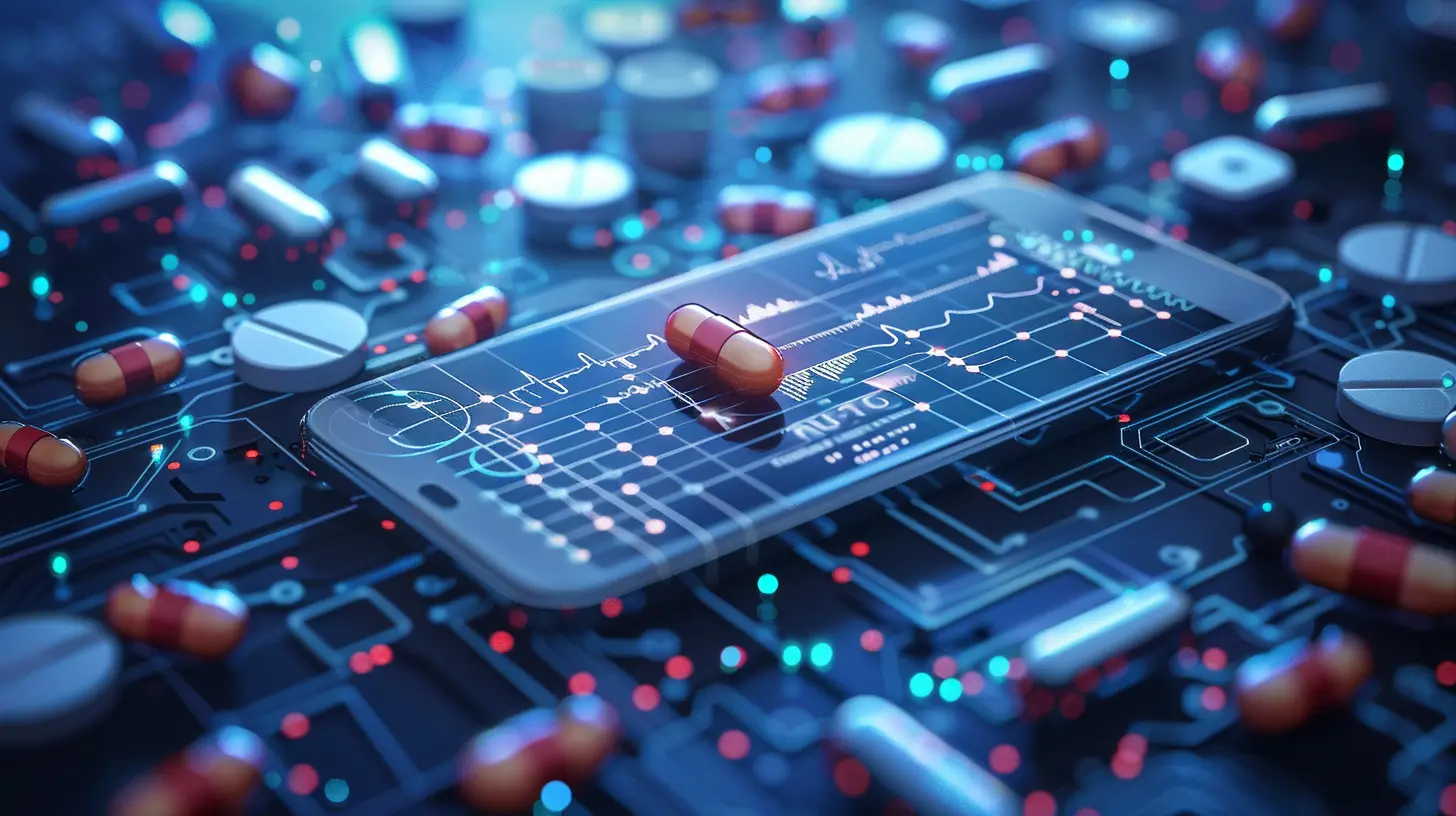How Big Data is Revolutionizing Personalized Medicine
21 May 2025
In the past, medicine followed a "one-size-fits-all" approach. If you had an illness, doctors treated you based on general guidelines rather than what would work best for you as an individual. But with the rise of big data, everything is changing.
Big data is transforming healthcare, making treatments more personalized and precise. It’s giving doctors the tools to predict, prevent, and even customize treatments based on a person’s genes, lifestyle, and medical history. Sounds like something out of a sci-fi movie, right? But it’s happening right now.
Let’s break down how big data is revolutionizing personalized medicine and why it’s a game-changer for the future of healthcare.
What is Big Data in Healthcare?
Big data refers to vast amounts of information generated every second, from medical records and genetic data to wearable devices tracking our heart rates. In simple terms, it’s the collection and analysis of massive datasets to uncover trends, patterns, and insights.In healthcare, big data comes from various sources:
- Electronic Health Records (EHRs): Digital versions of patient records.
- Genomic Data: Information about a person's DNA and genes.
- Wearable Health Devices: Smartwatches, fitness bands, and health-tracking apps.
- Medical Imaging: MRI scans, X-rays, and CT scans.
- Clinical Studies: Research databases with patient outcomes.
- Social and Behavioral Data: Information on diet, exercise, and lifestyle.
When all this data is combined and analyzed, it helps doctors make more informed decisions, leading to personalized medicine—custom treatments designed just for you.
How Big Data is Transforming Personalized Medicine
So, how exactly does big data make medicine more personalized? Let’s take a closer look.1. Predicting Diseases Before They Happen
Wouldn't it be amazing if doctors could predict diseases before they even show symptoms? With big data, they can.By analyzing genetic markers, family history, and lifestyle factors, AI-powered algorithms can identify risk factors for diseases like cancer, diabetes, and heart disease before they develop. This allows patients to take preventive measures early on—like changing their diet, exercising more, or taking targeted medications.
For example, companies like 23andMe and AncestryDNA use genetic data to predict risks for certain diseases. Imagine knowing you’re at high risk for heart disease and being able to make necessary lifestyle changes before it becomes a real problem.
2. Personalized Drug Development and Treatment Plans
Traditional medicine often prescribes the same drug for everyone with a particular illness, even though not everyone responds the same way. Some people might experience side effects, while others might not see any improvements at all.Big data allows pharmaceutical companies to develop tailored drugs and treatment plans. By analyzing molecular data and a patient's genetic structure, doctors can prescribe medications that work best for that individual, improving effectiveness and reducing side effects.
For example, cancer treatments are now becoming more personalized through precision oncology. Instead of using a standard chemotherapy drug, which may or may not work, doctors can analyze a patient’s genetics and prescribe a treatment specifically targeting their unique cancer cells.
3. Real-Time Monitoring and Wearable Technology
Ever used a Fitbit or an Apple Watch to track your health? These wearable devices continuously collect biometric data, such as heart rate, oxygen levels, and even sleep patterns.Doctors can use this real-time data to monitor patients remotely and detect abnormalities before symptoms even appear. If your smartwatch notices an irregular heartbeat, it can alert your doctor, potentially preventing a heart attack before it happens.
This kind of real-time health tracking ensures that medical interventions happen quickly and efficiently, potentially saving lives.
4. Faster and More Accurate Diagnoses
Misdiagnoses are a massive problem in healthcare. In some cases, they can mean the difference between life and death.Big data, combined with AI and machine learning, is making diagnoses faster and more accurate. AI systems are now being used to detect diseases in medical imaging (like X-rays and MRIs) at speeds and accuracy levels that surpass human doctors.
For example, Google's DeepMind uses AI to diagnose eye diseases just by analyzing retinal scans. This technology is helping doctors detect problems earlier, preventing vision loss in many patients.
5. Reducing Healthcare Costs
Healthcare is expensive—there’s no way around it. But big data is helping cut costs significantly.By predicting diseases early, reducing trial-and-error medication, and optimizing hospital management, healthcare providers are saving billions of dollars. Fewer unnecessary tests, hospitalizations, and ineffective treatments mean lower costs for both patients and healthcare systems.
Additionally, AI-driven chatbots and virtual assistants are taking over routine consultations and symptom-checking, freeing up doctors to focus on more serious cases.
Challenges of Using Big Data in Personalized Medicine
While big data is transforming healthcare, it’s not without challenges.1. Privacy and Data Security
Medical data is extremely sensitive. Patients worry about their personal health records being hacked or misused. Stronger cybersecurity measures and strict regulations (such as HIPAA in the U.S.) are needed to keep patient data safe.2. Data Overload
With so much data available, it’s easy to get overwhelmed. Doctors and researchers need better tools to analyze this information efficiently without missing important details.3. Ethical Concerns
Who owns patient data? Should pharmaceutical companies have access to it? How do we prevent discrimination based on genetic risks? These ethical dilemmas need clear guidelines to prevent misuse.4. Integration Across Systems
Different hospitals and healthcare providers use different systems, making it difficult to share data seamlessly. There needs to be a standardized system to unify healthcare data across the world.
The Future of Big Data in Personalized Medicine
We’re just scratching the surface of what big data can do for personalized medicine. In the future, we can expect:- Even More Precise Treatments: AI will refine treatment plans even further.
- Wider Use of Genomic Data: Gene editing tools like CRISPR could revolutionize genetic diseases.
- Improved AI Diagnostics: AI will continue improving disease detection and accuracy.
- Enhanced Patient Engagement: More apps and wearables will put health data directly into patients’ hands.
The ultimate goal? To create a healthcare system where diseases are predicted, treatments are custom-tailored, and lives are saved before conditions become critical.
Final Thoughts
Big data is revolutionizing personalized medicine in ways we never imagined. From predicting diseases before they emerge to developing personalized drugs, the potential is real—and it’s happening now.Sure, there are challenges, but the benefits far outweigh the risks. With continuous advancements in AI, machine learning, and data analytics, the future of healthcare looks incredibly promising.
So, the next time you check your smartwatch, remember—it’s not just counting steps. It could be the future of medicine sitting right on your wrist.
all images in this post were generated using AI tools
Category:
Big DataAuthor:

Michael Robinson
Discussion
rate this article
4 comments
Zarev Estes
Insightful perspective, thank you!
May 27, 2025 at 10:50 AM

Michael Robinson
Thank you! I'm glad you found it insightful!
Darby Phillips
Big Data: the prescription for a tailored future in medicine's evolution.
May 27, 2025 at 4:43 AM

Michael Robinson
Thank you! Big data is indeed transforming personalized medicine, enabling more precise treatments and improving patient outcomes.
Zareth Hardy
Unleashing data's transformative power!
May 26, 2025 at 3:34 AM

Michael Robinson
Thank you! Harnessing data is indeed pivotal in shaping the future of personalized medicine.
Lira McHugh
Absolutely thrilled to see how big data is transforming personalized medicine! The possibilities for tailored treatments and improved patient care are endless. Exciting times ahead for healthcare innovation!
May 23, 2025 at 3:33 AM

Michael Robinson
Thank you! It truly is an exciting time as big data opens up new avenues for personalized treatments and enhances patient care. The future looks promising!



